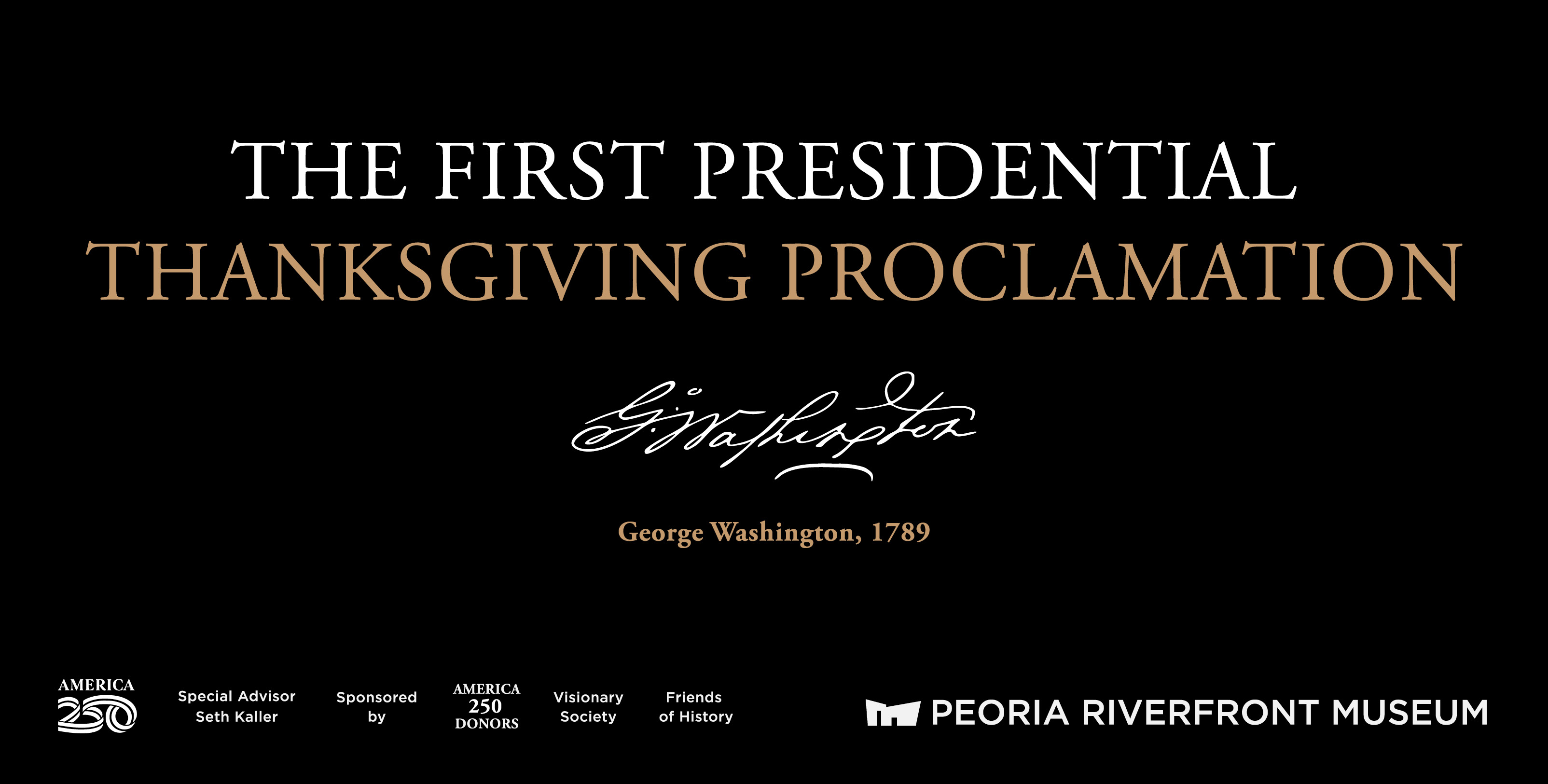
On October 3, 1789, President George Washington issued the first official presidential Thanksgiving proclamation.
On the day Congress approved the proposed Bill of Rights, just before the close of the first session of the first Federal Congress, they requested the president issue a Thanksgiving Proclamation.
Here, George Washington followed through with this Proclamation calling on all Americans to give thanks for "the peacable and rational manner in which we have been enabled to establish constitutions of government for our safety and happiness... for the civil and religious liberty with which we are blessed; and the means we have of acquiring and diffusing useful knowledge."
As the Declaration of Independence has done 13-years earlier, this often-overlooked founding document set forth an aspiration statement of purpose. The new republic would be composed of citizens who performed "our several and relative duties properly and punctually" with a government of "wise, just and constitutional laws, discreetly and faithfully executed and obeyed." It asks God to bless "all Sovereigns and Nations (especially such as have shewn kindness unto us)" with "good government, peace, and concord." and to "promote the knowledge and practice of true religion and virtue and the encrease of science among them and us...."
This proclamation laid the foundation for the modern national holiday, which after sporadic occasions became an annual event in 1863 under Abraham Lincoln, the 16th president of the United States.
America 250 and the Promise of Liberty
Washington’s Thanksgiving Proclamation is one of over 100 documents, art, and artifacts coming to the Peoria Riverfront Museum for an exhibition at the center of our celebration of America 250: The Promise of Liberty, guest curated by documentarian Ken Burns.
The Promise of Liberty will bring together for the first time many of the most important documents in our nation’s history, including A 1776 printing of the Declaration of Independence, a copy of the Emancipation Proclamation signed by Abraham Lincoln and Dr. Martin Luther King J.r.’s famous “I Have a Dream” speech.
This document is a part of the Peoria Riverfront Museum's presentation of America 250, in partnership with Special Advisor Seth Kaller.
Sponsored by America 250 donors, Visionary Society, Friends of History.